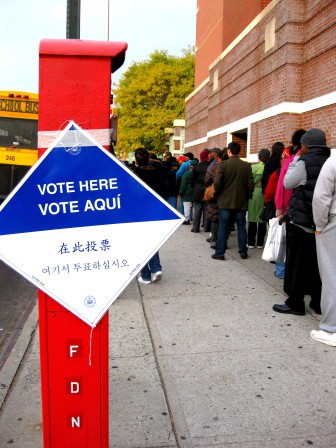
While recalling those commercials, featuring Andre Agassi (pro tennis player) saying, “Image is everything” and Billy Crystal’s “Saturday Night Live” character, Fernando, who always said, “You look marvelous! It is better to look good than to feel good,” I also thought of the NAACP Image Awards and the fact that the NAACP’s image is taking a huge hit, especially among some of its members.
During the past month, I have spoken to many people who are very disenchanted with the NAACP, not for the same reasons we hear all the time from young folks and others who feel the organization has served its usefulness, but for a much worse reason: Corruption. Members who have worked tirelessly within their local branches for years are now speaking out about how the venerable organization is destroying its image by allowing, participating in, and turning a blind eye to member voter suppression, fixing local elections, and lack of accountability of funds. I don’t think that’s the image desired by most NAACP members.
To borrow the most over-used word in the Obama administration’s lexicon, let me be “clear.” I am not on a mission to destroy the NAACP. The only administrator I have ever had contact with is Gill Ford, who presides like a dictator over the local branches. In fact, I admire Brother Detrick Muhammad and the work he does on economic development; I appreciate Hilary Shelton for his involvement in a variety of pressing issues, especially his outspoken participation at Ron Daniels’ panel discussion in D.C. last year.
I do have concerns about the organization’s direction and never ending solicitation of donations from members, in light of the $46 million Ben Jealous said he left in the NAACP coffers when he resigned. Moreover, as I reflect on the countless number of volunteer hours I worked for the NAACP, I believe I have the right – and the obligation – to voice my criticism and call for change within. I use this external forum because they refuse to respond internally.
The image of the NAACP is tarnished, mainly because it offers tepid responses to crisis-level issues; in addition, it has left a “trail of tears” across this country at local branches, via the corrupt and downright dictatorial practices of Gill Ford, a person the national office protects, if not collaborates with. The NAACP image portrays strength and resolve, courage and confidence, integrity and respect for its membership; but some of its national personnel are the complete opposite of that portrayal.
Getting a response from folks at the national office, by email, letter, phone call, or carrier pigeon is tantamount to trying to break into the CIA. Having written, called, and sent emails on many occasions, I can personally attest to that fact. And don’t dare to call it out; that road usually leads to nowhere.
Therefore, the conclusion I have drawn is that image means more to the NAACP than its local members, who are just pawns that are used and disposed of at the whim of Gill Ford. Many have been expelled from the NAACP when they disclose wrongdoing, point out corruption, and reveal financial inconsistencies or just outright violations of the law. If members persist in their righteous attempts at internal justice, retaliation is sure and swift. The mistreatment of local members is shameful and disrespectful.
It is ironic and perplexing that an organization that hands out “Image Awards” does not qualify for one of its own awards. The NAACP had to put forth a great image, locally and nationally, for its National Convention to be held in Philadelphia this year, where local branch members have been and still are embroiled in a legal battle for disclosure of hundreds of thousands of dollars (Gill Ford did “his thing” there too). The economic impact on the city will be in the millions and the NAACP will reap handsome economic benefits as well—all based on a manufactured image. That must change, and it can only change from within.
Over the years I have written several articles that juxtapose issues like symbolism and substance, consciousness and capital, doing good and feeling good, power and principle, and leaders and pleaders, just to name a few. I have come to know that we settle for empty words, pretentiousness, and shallow images as it relates to our internal accountability. As Carter G. Woodson wrote in his timeless work, The Mis-Education of the Negro, Black people have a tendency to follow mis-leaders rather than authentic leaders. Right now, the NAACP is mis-leading our people, and is using its image to shroud the wrongdoing within its ranks. I trust they will clean it up before it’s too late or, even worse, before they get caught with their hands in the proverbial cookie jar.
Jim Clingman, founder of the Greater Cincinnati African American Chamber of Commerce, is the nation’s most prolific writer on economic empowerment for Black people. He is an adjunct professor at the University of Cincinnati and can be reached through his website, blackonomics.com.
We thank Jim Clingman and NNPA for sharing this story with us.
